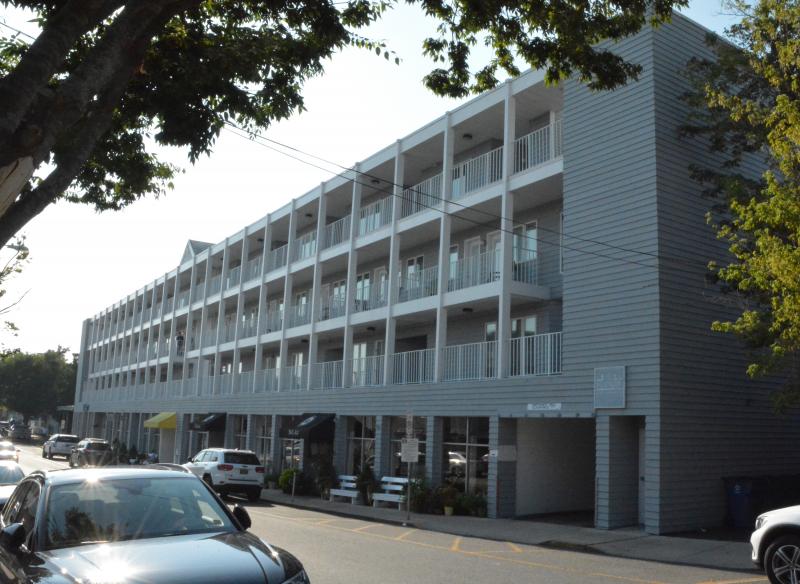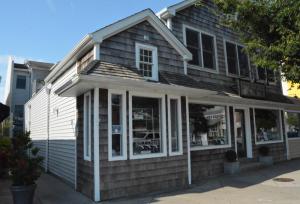Rehoboth residents wary of mixed use
The Rehoboth Beach Planning Commission hosted its second topic-specific workshop related to the 2020 comprehensive development plan Aug. 3. Centered on the future of mixed-use in the city’s commercial district, some spoke in favor and others urged caution because it would require a major overhaul of the city’s commercial zoning code.
Planning commission Chair David Mellen said the area is primarily Rehoboth, Baltimore and Wilmington avenues. He said mixed-use was discussed during the 2010 comprehensive development plan, and it means different things to different people.
“It’s like Howard Johnson’s. There’s 24 flavors,” he said, before generically defining the area as a live-work space with residential, commercial, cultural, institutional or entertainment connected with pedestrian access.
Rehoboth’s state-mandated comprehensive development plan is due in 2020. For the better part of a year, the planning commission has been working on setting the foundation for public participation, hiring a consultant to guide the city through the process, preparing a rough sketch of how things will move forward and coming up with questions for a survey.
The recent workshop was the second topic-specific meeting. The first, held July 20, was on sea level rise and climate change.
Since being re-elected last summer, Commissioner Pat Coluzzi has championed the mixed-use concept. Expanding on a presentation she gave a few months ago, she said mixed-use could make Rehoboth’s downtown a more vibrant, year-round community.
Pointing to the two-story structure on the southeast corner of Rehoboth Avenue and Second Street, which houses Bikes to Go and Juice Box Rehoboth, Coluzzi said mixed-use in Rehoboth is not a new idea. She said that building was constructed in 1949.
She said mixed-use provides better use of space for builders, but it would require the city to remove residential setbacks and some parking requirements. Coluzzi proposed incentives to encourage mixed-use development – tax breaks or decreased fees. She said she would also like to see apartments, not condominiums, because she thinks that will encourage middle-managers instead of second-home residents.
Resident Brian Patterson, a former planning commission member, spoke in favor of mixed-use, describing it as the most overdue and impactful thing the 2020 comprehensive development plan could tackle. There’s a lot of underutilized space in Rehoboth, he said, and redevelopment needs to happen.
But not everyone was enthusiastic. Resident Sturges Dodge wanted to know the problem mixed-use zoning was trying to solve. She said there used to be gas stations and grocery stores to service year-round residents, but those don’t exist in town anymore. Many of the businesses only serve the visitors, she said.
Resident John Dewey said if the planning commission continues to explore the issue, he urged a strong look at parking requirements. High-density living in the residential districts has left some neighbors looking like West Virginia, with all the cars on the lawns, he said.
Commission member Joyce Lussier said if the city decides to move forward on mixed-use, strict design standards must be in place.
Commission member Lee Weber said mixed-use would allow for more variety of housing types in the city, and trying to do it in the commercial zones made the most sense.
Commission member Jeff Trunzo said he saw it as a social justice issue. Rehoboth can’t have just all single-family, million-dollar houses, he said.
Resident Jan Konsey, also a former planning commission member, didn’t speak against mixed-use; she urged caution that the city shouldn’t be the one to rewrite the code to accommodate the new use. There’s nobody on staff or any of the committees who are qualified to write that code, she said, urging city officials to hire a professional.
Mellen said he expected there to be more workshops on different subjects, but they haven’t been scheduled yet.
The planning commission is still collecting survey data from resident owners, business owners and city visitors. Mellen said the results of those surveys will also play a role in what topics the planning commission discusses going forward. Survey responses are being taken through Saturday, Aug. 31, on the city’s website, cityofrehoboth.com.
Chris Flood has been working for the Cape Gazette since early 2014. He currently covers Rehoboth Beach and Henlopen Acres, but has also covered Dewey Beach and the state government. He covers environmental stories, business stories and random stories on subjects he finds interesting, and he also writes a column called Choppin’ Wood that runs every other week. He’s a graduate of the University of Maine and the Landing School of Boat Building & Design.






















































